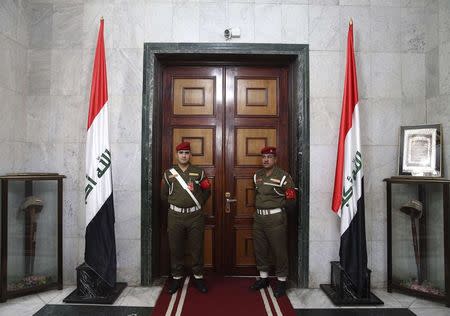Washington tries 'passive tough love' in Iraq

By David Rohde WASHINGTON (Reuters) - When the United States withdrew its last troops from Iraq at the end of 2011, both Washington and Baghdad said Iraq was ready to defend itself. The rise of radical Sunni group Islamic State has proven that belief wrong. Yet senior White House and Pentagon officials are determined to show "strategic patience" and not be drawn into Iraq's new civil war. Washington has sent 1,900 troops to Iraq, while U.S. forces and their allies have conducted more than 1,300 air strikes against Islamic State, in both Iraq and Syria. But American officials say their goal is to get Iraqis to resolve their deep political differences and battle Islamic State themselves. "The message to Iraqis was you must do it yourself," said a senior American official who was part of a U.S. military delegation that recently visited Baghdad. "We can't solve it for you." Jonathan Stevenson, who from 2011 to 2013 served as the National Security Council's director for political-military affairs for the Middle East and North Africa, said the belief in "strategic patience" comes from President Barack Obama himself. Stevenson said budget constraints and the White House's hopes for a détente – and possible nuclear deal – with Tehran fuel the go-slow approach. Most senior American military commanders believe another large U.S. military intervention in the Middle East would likely fail and be hugely unpopular at home. Stevenson said Middle East leaders also have an "exaggerated perception" of the impact an American military intervention to unite Iraq might have. One way to change that view of American military power is "don't use it." "I think that is the prescription the administration is trying to follow," he said. "It's a form of passive tough love." (Edited by Simon Robinson)
